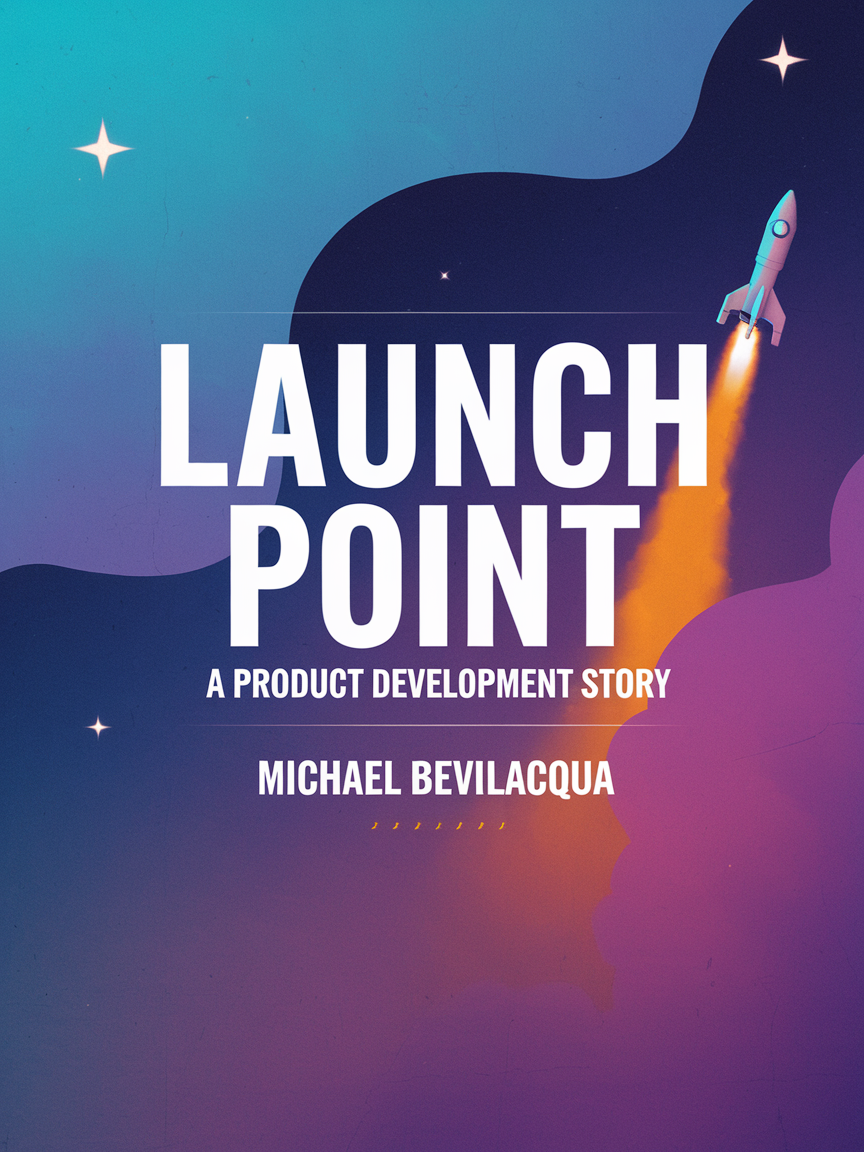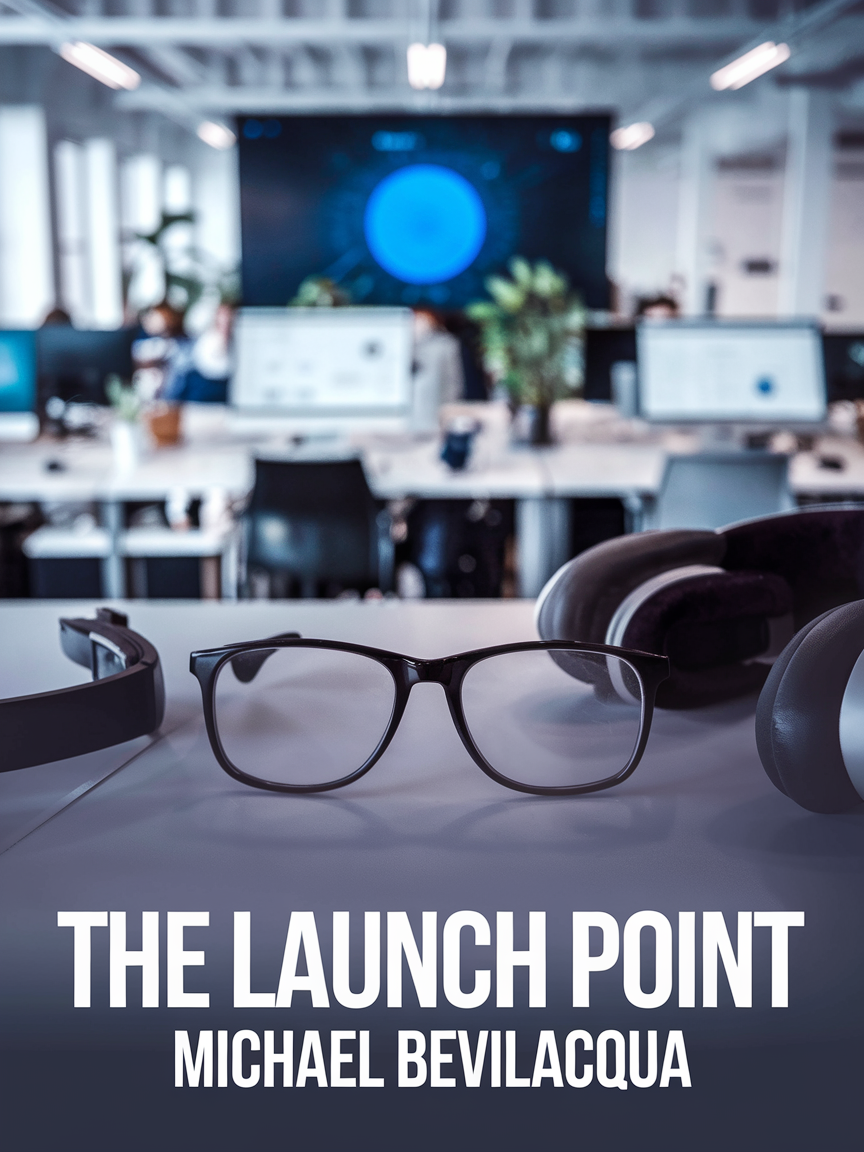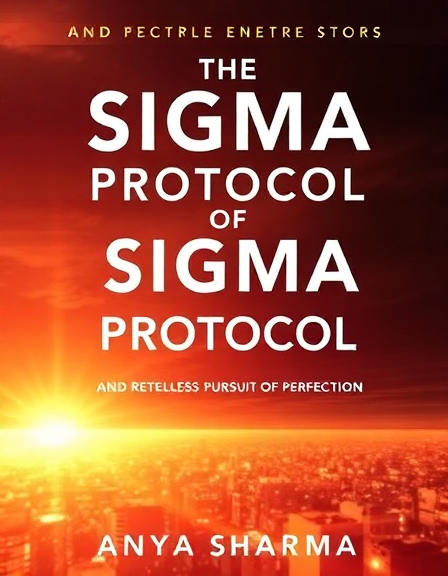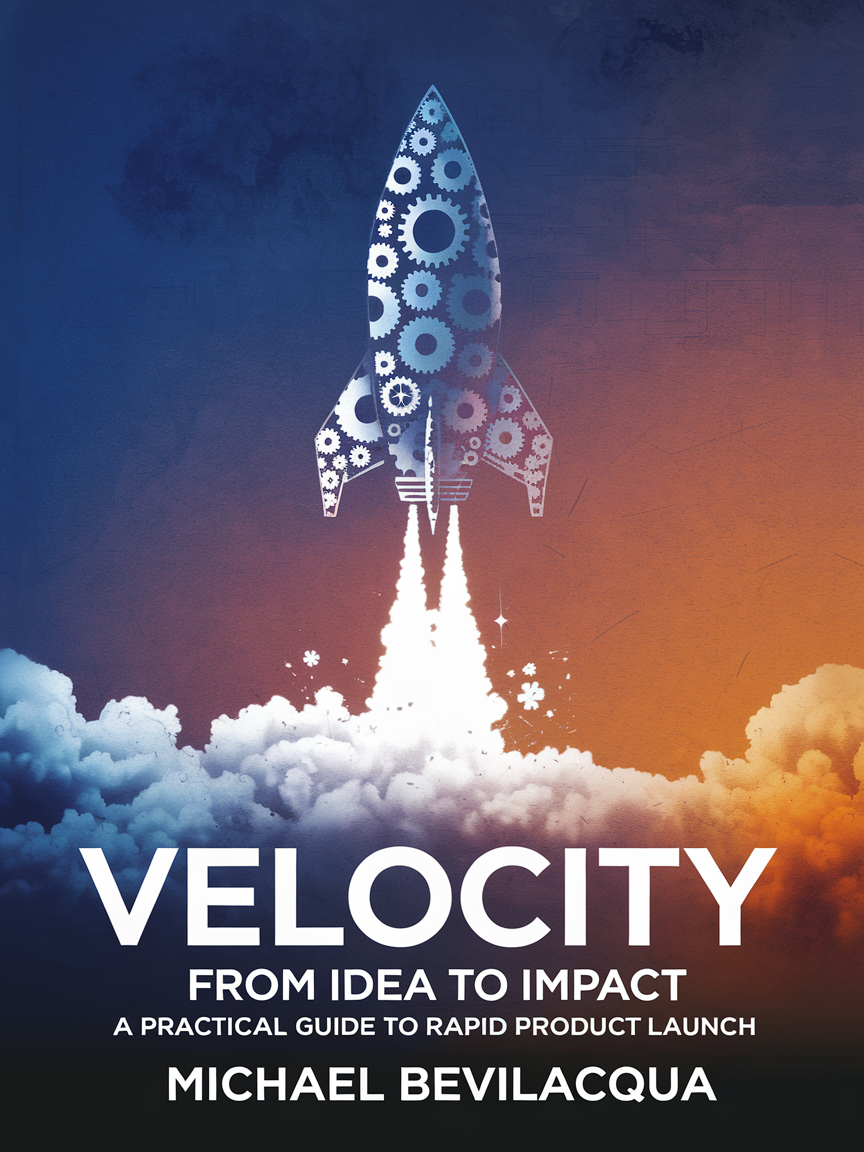Michael Bevilacqua
Biography
Director of new product introduction and expert on manufacturing and transferring designs from engineering to production
Reviews Summary
3.7
Rating Breakdown
9 total ratings
Director of new product introduction and expert on manufacturing and transferring designs from engineering to production
3.7
Rating Breakdown
9 total ratings
"Launch Point" is a genuinely engaging thriller that cleverly weaves technical product development into a compelling narrative. The plot moves at a good pace, keeping you hooked as Alexa navigates the intense pressures of bringing a revolutionary product to market. Alexa Rivera is a relatable and strong protagonist, and the supporting characters add depth to the team's struggles. The writing is clear and accessible, making complex concepts like Six Sigma and DFMA understandable without slowing the story. I particularly appreciated how the book highlighted the human cost of intense deadlines and the importance of work-life balance. This book offered a fascinating look behind the scenes of innovation, making it an enjoyable and insightful read. It's a story that makes you think about the real challenges of bringing new technology to life. I would highly recommend "Launch Point" to anyone interested in technology, business, or just a good, smart story. This novel successfully demonstrates that learning can be exciting and suspenseful. The resolution felt earned and provided a satisfying conclusion to the team's journey. It made me appreciate the meticulous work that goes into the products we use every day. A truly memorable experience that blends education with entertainment seamlessly.
Launch Point offers a solid, if sometimes dry, exploration of product development principles. The narrative effectively illustrates the chaos of bringing a tech product to market, though the pacing occasionally falters under the weight of technical explanations. Alexa Rivera is a competent protagonist, but the supporting cast feels somewhat underdeveloped, serving more as conduits for lessons than fully realized individuals. The writing style is functional and informative, clearly aiming for educational value, but sometimes sacrifices narrative flow for exposition. While the lessons on methodologies like Six Sigma and DFMA are valuable, the story could have benefited from more emotional resonance to fully engage the reader. It’s a worthwhile read for those deeply invested in the mechanics of product engineering, but less so for those seeking a purely thrilling narrative. The inclusion of realistic challenges like investor scrutiny and team burnout adds a welcome layer of authenticity. However, the constant emphasis on business frameworks sometimes overshadows the "thriller" aspect promised in the genre. I appreciated the practical takeaways, especially concerning documentation and quality control. Ultimately, Launch Point succeeds more as a business case study than a pulse-pounding thriller.
"Launch Point - A Product Development Story" offered an interesting, if sometimes uneven, dive into the intricacies of bringing a tech product to life. The plot successfully illustrated the many hurdles in product development, though the pacing occasionally felt bogged down by technical explanations. Alexa Rivera is a capable protagonist, but some of the supporting characters felt a bit underdeveloped, serving more as plot devices than fully fleshed individuals. The writing style is clear and informative, especially when detailing methodologies, but it lacked the gripping tension I'd expect from a thriller. While I learned a lot about concepts like DFMA and Six Sigma, the thriller elements didn't fully deliver the suspense I was hoping for. The story does a good job of showcasing the human cost of intense development cycles, touching on burnout effectively. I appreciated the practical lessons embedded within the narrative, making it a valuable read for those in the tech industry. However, readers seeking a traditional thriller with high stakes and constant suspense might find the focus on process a bit too dominant. It's a book that appeals more to the analytical mind, offering a compelling look at problem-solving in a high-pressure environment. Ultimately, it's a worthwhile read for its educational value, though it didn't quite hit the thriller mark for me.
Launch Point offered a surprisingly engaging look into the trenches of product development. The story of Alexa Rivera and NovaTech's wearable project felt both ambitious and grounded. I appreciated how the book didn't shy away from the real challenges of bringing an idea to life, like those frustrating vendor issues. While the technical aspects were fascinating, sometimes the pacing felt a little too focused on the methodologies. The characters, especially Alexa, were well-drawn, and I felt her stress during those compressed timelines. It made me think about the importance of thoroughness in any project, not just tech. I learned quite a bit about concepts like Six Sigma and Theory of Constraints without it feeling like a textbook. The ethical considerations around AI were a nice touch, adding another layer to the narrative. Overall, it was an inspiring read for anyone curious about innovation, even if it got a little heavy on the business jargon at times. I would definitely recommend this to friends in engineering or business school.
Launch Point is a compelling thriller that successfully blends technical exposition with high-stakes drama. The narrative skillfully depicts the product development lifecycle, though some technical sections could feel dense. Alexa Rivera's journey is well-realized, showcasing the pressures faced by innovators in Silicon Valley. Michael Bevilacqua's prose is clear and engaging, making complex methodologies accessible. The exploration of AI ethics adds a timely and thought-provoking layer to the story. I appreciated the inclusion of specific business tools like Six Sigma and DFMA, which lent authenticity. The pacing generally works well, though a few plot points felt slightly predictable. While the supporting characters could have been more developed, their interactions with Alexa were believable. The book's emphasis on the human cost of innovation, particularly burnout, is a strong thematic element. This is an insightful read for anyone interested in the intersection of technology, business, and human endeavor. It offers valuable lessons without sacrificing entertainment value, making it a rewarding experience.
"The Launch Point" offered a surprisingly engaging dive into the complexities of tech product development. The story of Alex Rivera and her team felt grounded and relatable, even with the high-stakes scenarios. I appreciated how the author wove in business concepts without making it feel like a textbook. The pacing was mostly good, though some of the technical explanations slowed things down slightly for me. Alex's journey from untested engineer to confident leader was a compelling arc to follow. It was interesting to see the consequences of rushed decisions play out in the narrative. The book provided a good balance between the drama of a startup and the practicalities of engineering. I found myself thinking about the principles discussed even after putting the book down. While the ending was satisfying, I wished for a little more resolution in a couple of the subplots. This is a solid choice for anyone curious about the process behind bringing innovative products to life. It's a novel that respects its readers' intelligence while telling a good story. I would recommend this to fellow readers who enjoy a blend of business and narrative.
"Launch Point: The AI Wearable Revolution" is a truly compelling read that expertly blends technical accuracy with narrative drive. The story of Alexa Rivera and NovaTech's AI wearable project is rich with the real-world challenges of product development, from initial validation failures to production line crises. While the technical explanations are detailed and insightful, occasionally the pacing faltered slightly under the weight of industry jargon, though this was a minor point in an otherwise engaging plot. The characters, particularly Alexa, felt well-realized, and the exploration of team dynamics and the human cost of innovation was a strong thematic element. I found myself actively applying the lessons on Theory of Constraints and DFMA to my own work even before finishing the book. The author effectively conveys the complexity of bringing a sophisticated tech product to market without becoming overly didactic. The resolution felt earned, showcasing the hard-won success after numerous setbacks, though a bit more exploration of the AI ethics subplot would have been welcome. This is a standout example of business fiction that actually teaches you something valuable while keeping you thoroughly entertained. I would strongly recommend this novel to anyone in engineering, entrepreneurship, or business management looking for a practical, yet thrilling, perspective on innovation. The book successfully demonstrates how critical methodologies can prevent costly mistakes in product development. It’s a masterclass in showcasing the iterative and often messy journey of innovation. This novel provides a refreshingly authentic look at the pressures and rewards within the tech industry.
The Launch Point offers a compelling look into the intricate world of tech startups, making for an engaging read. The narrative skillfully balances the thrill of innovation with the realities of product development challenges. Alex Rivera's journey showcases a relatable struggle for competence and leadership in a high-pressure environment. Michael Bevilacqua successfully integrates complex business concepts without derailing the fictional adventure. While the plot moves at a good pace, some of the technical explanations felt a touch didactic at times. The portrayal of team dynamics and the consequences of rushed decisions rings true. Readers interested in business strategy will find the embedded principles particularly insightful. The ending emphasizes long-term vision, providing a thoughtful conclusion to Alex's initial challenges. Overall, it's a solid piece of literary fiction that educates as much as it entertains. I would recommend this to those who enjoy character-driven stories with a practical, underlying theme.
This book offered a unique approach to business concepts within a fictional narrative, though it struggled to fully deliver on both fronts. The plot felt a bit too didactic at times, with the business principles sometimes overshadowing the thrill of the startup world. Alex Rivera's journey was interesting, but some of the supporting characters lacked significant depth or memorable development. While the writing was clear, it didn't always capture the emotional intensity one might expect from a high-stakes thriller. I appreciated the attempt to integrate complex business theories like the Theory of Constraints, but their application felt more like lessons than organic story elements. The narrative pacing wavered, with moments of genuine excitement interspersed with slower, more instructional passages. It was an ambitious endeavor to blend this kind of technical detail with a compelling fictional adventure. Ultimately, I found the balance between fiction and education to be slightly uneven for my taste. While I learned some things about product development, the story itself didn't resonate as deeply as I had hoped. This might appeal more to readers specifically looking to absorb business methodologies through story. I wish the author had leaned more heavily into the human drama of the startup environment. It's a book with potential, but it ultimately fell a little short of its ambitious goals.
By Michael Bevilacqua





